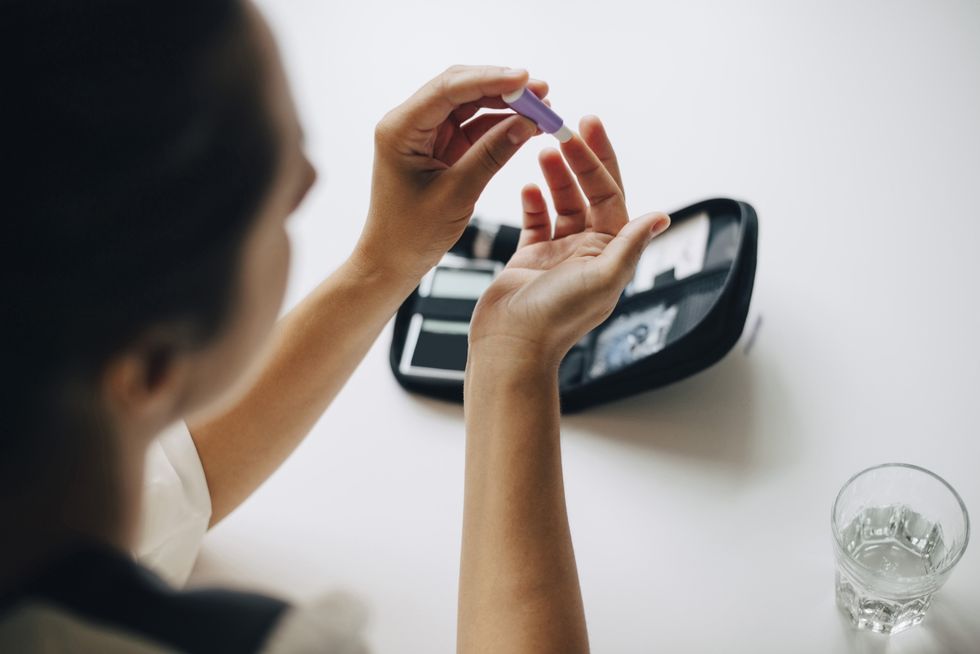'I'm a doctor - your eyes may be showing you signs of prolonged high blood sugar and nerve damage'

Dr Alasdair Scott shares tips on how to avoid diabetes
|GBN

Changes in vision could be signalling something is wrong, an expert has warned
Don't Miss
Most Read
While blood sugar concerns may seem like a problem only for diabetics, tight glucose management can prevent a host of issues, even for the otherwise healthy.
But one-in-five people is currently living with prediabetes and diabetes, according to Diabetes UK, with many unaware they're at risk of a diagnosis.
Dr Alexis Missick, a GP who works with UK Meds, explained that changes in the bathroom and vision complications could signal that something is wrong.
More specifically, increased thirst and urination indicate the kidneys are fighting to remove excess sugar from the bloodstream, leading to increased urine production.
 | GETTY
| GETTYFatigue is the body's way of signalling it can't effectively use glucose for energy, leaving you feeling drained.
“Sudden weight loss can occur in some cases,” Dr Missick went on. “Weight gain may also be a symptom due to the body’s inability to use insulin and regulate blood sugar.”
The eyes are another important hotspot for symptoms because the lens is sensitive to changes in blood sugar.
“High blood sugar levels can affect the lens by causing blurred vision and other vision problems,” noted Dr Missick. "Prolonged high blood sugar levels can damage nerves, leading to a condition called diabetic neuropathy."
In more severe cases, where damage has spread to the blood vessels in the retina, patients risk blindness or vision loss. They may also struggle with bodily wounds.
“Type 2 diabetes can impair the body’s ability to heal wounds, leading to slower healing times,” explained Dr Missick.
Whereas the symptoms of Type 1 come on rather suddenly, Type 2 is often characterised by a slow and gradual development, causing delays in diagnosis.
“For both types of diabetes, clean and healthy eating and regular activity are essential for managing symptoms,” noted Dr Missick.
This can be managed with balanced meals rich in whole grains and lean proteins, while keeping processed foods and sugary drinks to a minimum.
Dr Missick continued: “Engage in at least 150 minutes of moderate activity per week.”
As consistently shown in medical research, losing even a small amount of weight can significantly improve blood sugar control and may even help reverse some cases of the condition.
LATEST DEVELOPMENTS

Losing weight can significantly improve insulin sensitivity
| GETTY“While there is no cure for Type 2 diabetes, it is possible to put it into remission, whereby blood sugar levels return to a healthy range without the need for medication,” Dr Missick noted.
The best ways to achieve this are through weight loss, healthy eating, and increased physical activity, according to the expert.
“Losing 10 to 15 per cent of body weight can significantly improve insulin sensitivity,” shared the expert.
“Reducing refined carbs and sugar intake can stabilise blood sugar levels,” he added, while “regular movement helps your body use insulin more effectively”.










